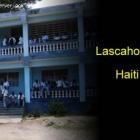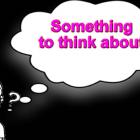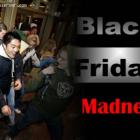ADVERTISEMENT
Zombie - Haiti Observer Blog
Zombie, Haiti Observer Blog. Read the following articles about Zombie
Zomby, a Pharmacological Phenomenon Clairvius Narcisse
The Haitian belief system of Voodoo is an inherent part of Haiti's cultural ethos. It co-exists alongside the dominant religion of the island, Catholicism, and has even adopted some of its practices. Traditionally, Voodoo has relied on animal sacrifice and percussion-driven dancing to induce deep trance states in order to receive the Lwa.
A peripheral phenomenon of Voodoo is the belief in Zombies, the living dead. To illustrate how a Zombie is created, Clairvius Narcisse is a prime example of how zombies originated as a cultural force in Haiti.
Clairvius Narcisse had been taken for dead around 1960. But unbeknownst to his family, a Voodoo priest had transformed Narcisse into a Zombie with the help of potent drugs. The priest exhumed Narcisse's body and in addition to Tetrodotoxin, which put Narcisse into a death-like state, the priest injected Clairvius Narcisse with Jimson weed, a powerful hallucinogen. This impaired Narcisse's brain function. He became a victim of forced labor until the priest died. Regaining his cognitive abilities, he drifted off, returning to his birth place to recount his agonizing experience.
The History of Voodoo
Voodoo is more correctly pronounced as "Voudon". It is an Afro-Caribbean religion originated in Haiti. Voodoo teaches belief in an unknown, uninvolved, supreme creator god called "Bondye" (good god). The believers of Voodoo worship many 'loa' or spirits. Each of these spirits or loa has own domain that represents specific parts of life. A farmer praises and offers to the spirit of agriculture; Erzulie Freda is the spirit of love. Loa are the intermediaries between humanity and Bondye-- the Creator who lives far from the world.
A Haitian professor, Leslie Desmangles who teaches at Hartford's Trinity College has written a book related to these practices named "The Encyclopedia of the Paranormal". He has said that "voudon" in Haiti refers to an assortment of many cultural elements that include folk medical practices, cult of ancestors, many traditional system of ethics, stories, songs, proverbs, folklores, personal beliefs and practices. It is more than a religion or belief; it is a way of life. The followers of this practice can be found in the Dominican Republic, Jamaica, United States, Brazil and elsewhere.
The Serpent and the Rainbow - Movie about Haitian Zombie
The Serpent and the Rainbow is a horror movie that was directed by Wes Craven in year 1988. The movie was inspired by a book by Wade Davis, which had the same title. Davis was an ethnobotanist from Harvard who investigated Haiti's Voodoo society and found out two drugs that were used for the purpose of zombification. The drugs he identified were used by the Voodoo practitioners to dramatically reduce the metabolic rate of victims which made them appear as if they were dead. The victims were then buried and later they were dug up and revived using herbal brew. The resurrected victims appeared lobotomized.
Death and funeral Rituals in Haitian Culture
A funeral in Haiti is an affair that might seem to an outsider, something out of a highly sensationalized plot. It invokes the same trappings of mainstream funerals in other countries, with the church, the body in the casket, the singing and scripture reading, but the differences soon become clear and can be quite an experience for someone who least expects it.
When someone dies in Haiti, burial is the only option. Organ donation and cremation are treated as abominations, as a body needs to be whole in order to be resurrected. And the belief in zombies, the dead-living created from evil intent or avarice, are the only reason, apart from suspected foul-play, why autopsies are sometimes practiced.
Haiti Zombie Culture an Outcome of Government Control
Zombies, like vampires, are dominating the entertainment media lately. You can view these monsters in movies, TV, and read of their ghoulish exploits in penny-ante novels. But contrary to the popular idea that zombies are evil incarnate, in Haitian lore they are victims of maltreatment at the hands of witch doctors known as bokers. The Haiti government has used the specter of these re-enlivened corpses to instill fear in the Haitian people, particularly during the Duvalier dynasty, which lasted nearly 30 years.
Papa Doc Duvalier formed a death-squad, the Tonton Macoutes, a group of men clad in denim shirts, straw hats, and sunglasses, who carried machetes. They often killed people in broad daylight, or carried them away in the dead of night, never to be seen or heard from again. The unexplained disappearance of a member of the Haitian community gave rise to the idea these victims had been turned into zombies, the living dead. Fed by Tonton Macoutes' threats they would zombie-fy anyone, whom they perceived as a dissident of the Duvalier regime, the legend took hold in Haitian imaginations.
Halloween as it is related to Zombies
You would see a lot of "zombies" roaming around on Halloween. This is because these creatures are a popular choice for costumes during the holiday. A lot of people dress like zombies to join Halloween festivities in order to be as fearful as they can be. But what is it about zombies that associate them with the dark side? And where do zombies really come from?
First of all, zombies are depicted as people who were brought back from the dead. They are like monsters, eating people and turning them into zombies. According to the common story, zombies live in graves and are awaken during the night. They do not think or speak. All they do is hurt and eat people in their way.
Face Eating Haitian Zombie Rudy Eugene shot and killed by police in Miami
You think you have heard them all, not quite. A Haitian man in Miami was spotted eating the face of a homeless man in Miami, on May 29, 2012. Police had to shot and kill him.
Is this the case of A Haitian Zombie?
Miami police found Rudy Eugene who is 31 years old, attacking a homeless man at the MacArthur Causeway and Biscayne Boulevard last Saturday. According to Police, when the Police officer approached Rudy Eugene, he was told to stop eating the man's face. He did not obey the officer. Instead, Rudy Eugene turned around and growled like a wild animal. Then he continued to eat the homeless man. The man was shot and killed by police near Downtown Miami on Saturday.
Our objective is to share with you news and information about Haiti and the people of Haiti. Traditions, habits and the way we were or grew are alive in this site. We highly recommend that you Subscribe to our Newsletter and also share with us some of the things that are memorable and made us unique people.

 Lascahobas, Haiti
Lascahobas, Haiti  Something to think about
Something to think about  Informative Marketing and Advertising in the Haitian Community
Informative Marketing and Advertising in the Haitian Community  Black Friday Shopping Season
Black Friday Shopping Season  Saint Marc, Haiti
Saint Marc, Haiti